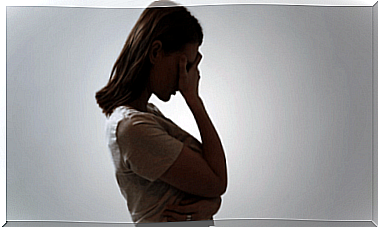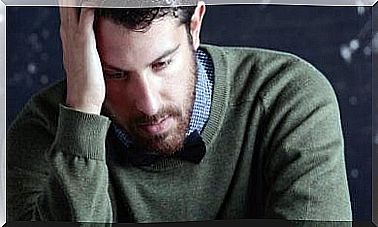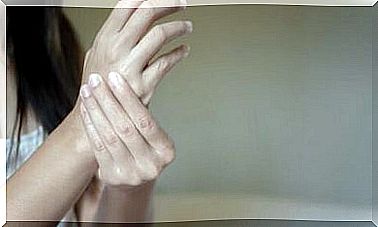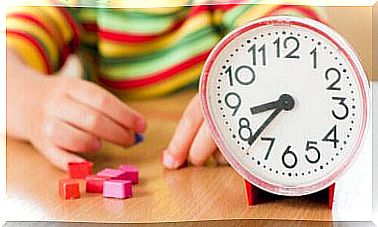What Is Special About The Dreams Of Depressed People?
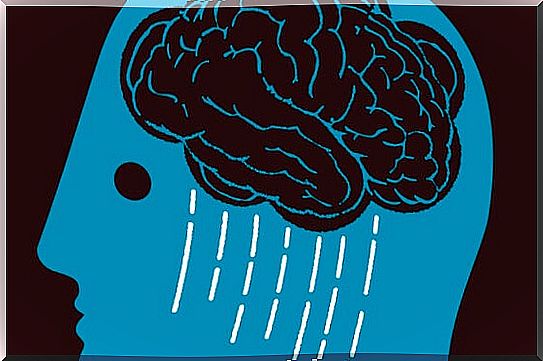
Depressed people tend to experience different types of sleep problems, but there is one strange fact that science has proven. The dreams of depressed people last up to three times longer than those of people without depression.
Depression often causes discomfort and exhaustion, but the dreams of depressed people have a very specific goal: to regulate their emotional world.
This is definitely a new topic, and one that no one knows so well. When we talk about depression, it is common to focus on a few specific things.
These are usually the symptoms, triggers and different treatments that we have. But we rarely look at the subject from the perspective of our dreams, to get a better understanding of what happens in the brain of a depressed person when he finally manages to fall asleep.
We agree with Freud that dreams are the royal path to the unconscious mind. That path may actually be a path that never takes us anywhere, but it will definitely provide interesting insights into what is going on in our minds.
Dreams show that there is a problem. They are like an abstract Kandinsky painting. They try to tell us something, give shape to what hurts, annoys, frightens or threatens us.
The dreams of people with depression are a defense mechanism that our brain uses to try to regulate the awkward feeling.
The REM phase in people with depression
Dr. Rosalind D. Cartwright is a renowned psychologist at the University of Cornell. She dedicated much of her life to researching and understanding the world of dreams.
In her well-known book “The Twenty-Four Hour Mind” , she talks about the interesting relationship between our emotions and our dreams.
It really is a fantastic effort based on years of research where an idea really stands out. The brain tries to help us deal with negative emotions through dreams.
The way it does this is as fascinating as it is strange. Why? Because people actually do not notice how dreaming helps them. But it tries to help through various mechanisms. Let’s take a look at them…
The REM phase and the dreams of depressed people
- Depressed people may, for example, be sleepy during the day and have difficulty falling asleep at night.
- When they wake up, they feel exhausted because they have not had a good resting rest. The exact opposite. They feel that their heads are “full”. They know they’ve been dreaming a lot, but they can not really understand what those dreams were about.
- What happens is that depressed people enter the REM phase much earlier. And this phase where the dreams occur usually lasts 3 times longer. In other words, the dreams of depressed people last three times longer than those of non-depressed people.
- We should also remember that we call REM sleep the “paradoxical sleep” after it does not make one rested. In fact, it is the period in which we produce the most adrenaline.
- Thanks to new types of tests, we have been able to see something concerning the limbic system. It is a system that is related to our emotions and it is very active during the REM phase. This only happens in depressed people.
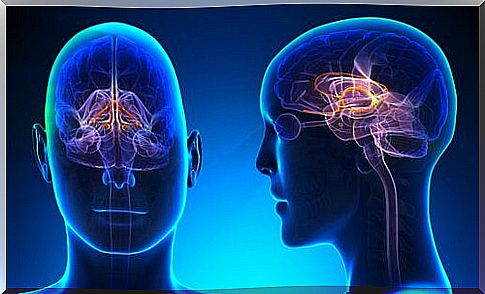
Dr. Cartwright explains how the brain takes control when we sleep. The most important aspect of this time, which is more important than getting a restorative physical rest, “pushes us” to sort out emotional knots.
However, it does so in the worst possible way. It uses nightmares, which also occur in the dreams of depressed people.
Everything that causes confusion, anxiety or depression comes out in this strange world. It is our brain that tries to regulate the negative emotions to “detoxify” this mixed tension.
Rest patterns in people with depression
We know that by “dreaming” three times as much, having nightmares and opening your eyes in the morning and feeling tired, you will not be so badly helped when it comes to overcoming depression.
If this information helps us with anything, it is to get to know our enemy better. And we should understand that our brain informs us that there is something we need to fix.
So we know that it is always a good idea to apply sleep strategies. They are useful for improving sleep in people with depression.
They can also help us if we go through a similar condition. This is true whether it is a minor depression, dysthymia or a major depression.
- We should avoid intensifying our emotional load before going to bed because then we will undoubtedly make our mood worse, and the REM phase will be longer and we will not be able to rest properly.
- Exercise such as meditation or any other relaxation technique will be helpful. This will help us go to bed with a less active brain.
- If we take antidepressants, it will be good for us to find out what side effects they can have on our sleep, and we may need to change medications if the effects are serious.
- And we need to adjust our circadian rhythm. We should try to follow a consistent schedule, where we go to bed and get up at the same time every day.

As we progress in our treatment plan, our REM sleep will adjust itself. It will take less time and let us rest better. At the same time, our dream world will not be so annoying, mysterious or scary. Our brain will stop prioritizing our emotions so that it can perform its habits during the night. During the night, it often classifies important information, organizes experiences, and removes useless information.
Our inner world will regain its balance. The nightmares and the shadows of depression will fade…


